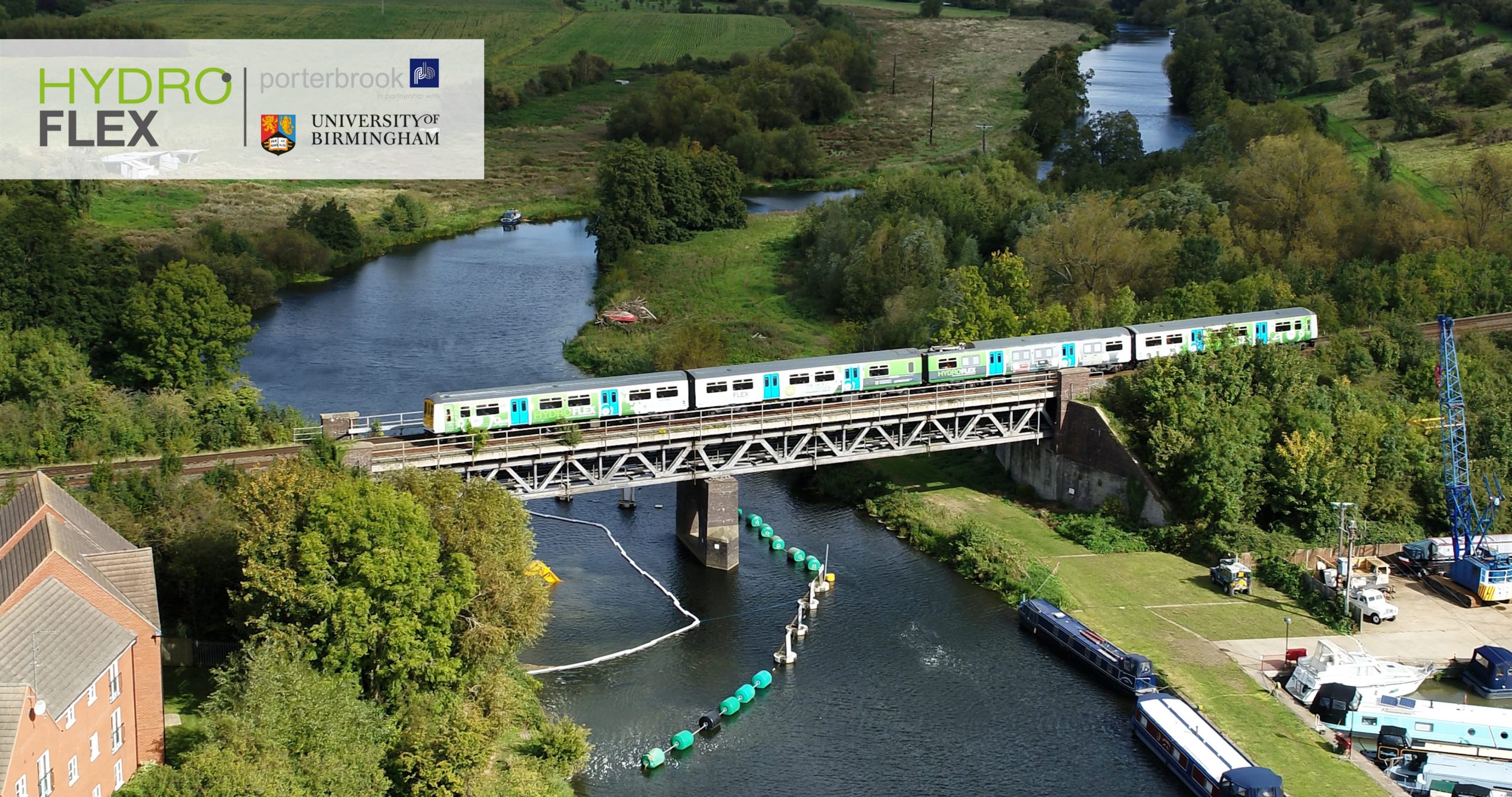
On 30th September, after nearly two years of development and almost £2 million spent, the first ever hydrogen train ran on the UK mainline
This new technology is the first step in helping to decarbonise the railway system, leading the way for a new, greener standard in UK transport
The train, known as HydroFLEX, is a project led by the partnership between the University of Birmingham’s (UoB) Birmingham Centre for Railway Research and Education (BCRRE) and railway rolling stock company Porterbrook,and is designed to reduce railway carbon emissions and help the UK reach its net zero targets.
This initiative embodies the future of transport; the use of hydrogen and oxygen produces only electricity, water and heat – a far cry from the harmful gases produced by diesel trains. This fuel cell technology therefore has the potential to become entirely operationally carbon neutral, whilst retaining an effective standard of functionality. The fuel cell uses a hybrid system, which is different to that of a standard, self-propelled train.
Charles Calvert, a PhD student in the BCRRE Power and Traction research group and Lead Systems Engineer for HydroFLEX, explained that the fuel cell can ‘continuously charge the batteries, whilst the batteries were used to meet the variable load of the electric motor,’ thus allowing for massively increased efficiency.
This technology is expected to become available by 2023, when trains that are currently circulating will be fitted with the greener substitute. Currently, transport is responsible for around 25% of the UK’s greenhouse gas emissions. By 2050, the government has pledged to have reduced carbon emissions in the UK by 80%, which demonstrates how pivotal this new hydrogen technology could be.
“Currently, transport is responsible for around 25% of the UK’s greenhouse gas emissions
The move to embrace hydrogen as an alternative fuel could also create hundreds of jobs. For instance, Transport Secretary Grant Shapps has suggested the creation of a Hydrogen Transport Hub in the Tees Valley. Having already developed the world’s largest hydrogen refuelling facility, the Tees Valley is ready to begin furthering employment opportunities and embedding change within the transport industry.
This ‘Hydrogen for Transport’ Programme is also set to put £6.3 million towards a hydrogen refuelling station, as well as 19 powered refuse vehicles in Glasgow. These enterprises are part of the wider £23 million Programme, designed to boost the post-Covid economy, create sustainable employment opportunities and decarbonise the transport industry.
The partnership between UoB’s BCRRE and Porterbrook demonstrates, as Professor Stephen Jarvis, Head of the College of Engineering and Physical Sciences at the University of Birmingham states, ‘how world-class research and development, together with the right industry partnerships, can deliver decarbonisation technologies that are both innovative and practical.’ Indeed, the next stage of the project is already in development, with the University of Birmingham developing a hydrogen and battery-powered module to be fitted beneath train carriages, allowing for further passenger space within the carriage. These changes introduce a viable and sustainable method for commencing a nationwide programme of electrification.
The response from the industry has been positive, which paves the way for further development. Mary Grant, CEO of Porterbrook, announced the intention to ‘start producing HydroFLEX trains, creating the world’s first electric and hydrogen-powered bi-mode rolling stock, as well as generating significant opportunities for the UK supply chain.’
Undoubtedly, this project is only the beginning of a wider commitment to a system of cleaner transport. It marks the beginning of a greener future, sustainable employment prospects and a move away from fossil-fuel dependency. Economically, environmentally and technologically, the HydroFLEX demonstrates the possibilities of hydrogen fuel and marks the first step in transforming the transport industry as a whole.
Liked this article? Here are some more from Redbrick News:
COVID-19 Home Testing Mix Up Puts Students At Risk
Comments